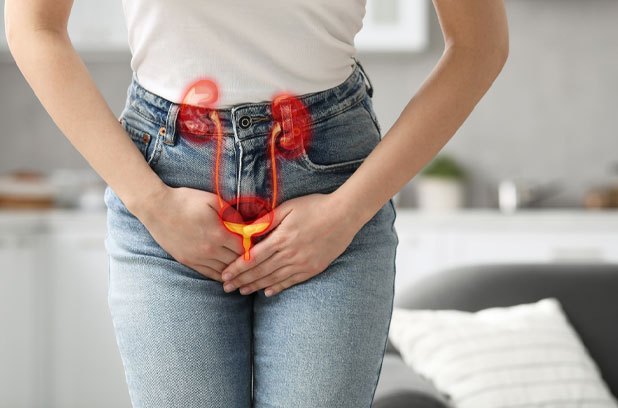Managing Neurogenic Overactive Bladder & Bladder Dysfunction
Bladder dysfunction, particularly overactive bladder (OAB) caused by a neurological condition, can significantly impact daily life. Individuals with neurological disorders such as multiple sclerosis (MS), Parkinson’s disease, or spinal cord injuries may experience involuntary bladder contractions, leading to urgency, frequency, and incontinence. Understanding the causes, symptoms, and treatment options is essential for effective management and improved quality of life.


What Is Neurogenic Overactive Bladder?
Neurogenic overactive bladder (NOAB) occurs when nerve damage disrupts the communication between the brain and the bladder, causing involuntary bladder contractions. This results in the urgent need to urinate, frequent urination, and, in some cases, incontinence.
Common Causes of Neurogenic Overactive Bladder
Several neurological conditions can contribute to NOAB, including:
- Multiple Sclerosis (MS) – Damage to nerve pathways affects bladder control.
- Parkinson’s Disease – Impaired dopamine regulation can lead to bladder dysfunction.
- Spinal Cord Injury (SCI) – Disrupts nerve signals between the bladder and the brain.
- Stroke – Affects the brain’s ability to control bladder function.
- Diabetes – Causes nerve damage (diabetic neuropathy) that impacts bladder control.
Symptoms of Neurogenic Overactive Bladder
Individuals with NOAB may experience:
- Urinary urgency – A sudden, uncontrollable need to urinate.
- Frequent urination – More than 8 trips to the bathroom per day.
- Nocturia – Waking up multiple times at night to urinate.
- Urinary incontinence – Involuntary leakage of urine.
- Incomplete bladder emptying – Feeling the bladder has not fully emptied.

Treatment Options for Neurogenic Overactive Bladder
While there is no single cure for NOAB, various treatments can help manage symptoms and improve quality of life.
1. Medications
Several prescription medications help relax bladder muscles and reduce involuntary contractions:
- Anticholinergics (e.g., Oxybutynin, Tolterodine) – Block nerve signals that trigger bladder contractions.
- Beta-3 Agonists (e.g., Mirabegron) – Help relax the bladder and increase its capacity.
- Botulinum Toxin (Botox) Injections – Temporarily paralyze overactive bladder muscles.
2. Behavioral and Lifestyle Modifications
- Bladder Training – Gradually increasing the time between bathroom visits to retrain the bladder.
- Scheduled Voiding – Establishing a routine for urination to prevent urgency.
- Pelvic Floor Therapy – Strengthening pelvic muscles to improve bladder control.
- Fluid Management – Avoiding caffeine, alcohol, and excessive fluid intake to reduce symptoms.
3. Medical Procedures and Advanced Therapies
- Nerve Stimulation Therapy (Sacral Neuromodulation, Tibial Nerve Stimulation) – Uses electrical impulses to regulate bladder function.
- Intermittent Catheterization – Helps manage incomplete bladder emptying.
- Surgical Interventions – In severe cases, procedures such as bladder augmentation may be considered.
When to Seek Medical Help
If symptoms of NOAB affect daily life, it is crucial to seek medical advice. Early intervention can prevent complications such as urinary tract infections (UTIs), kidney damage, and reduced quality of life.


Book An Appointment Today
Neurogenic overactive bladder is a challenging condition, but with the right treatment approach, individuals can manage symptoms effectively. Medications, lifestyle changes, physical therapy, and advanced medical treatments offer relief and improved bladder control. If you or a loved one is experiencing bladder dysfunction due to a neurological condition, consult a specialist to explore personalized treatment options.
Are you looking for expert care for bladder dysfunction? Contact Vital Aesthetics today to schedule a consultation and regain control over your bladder health.
